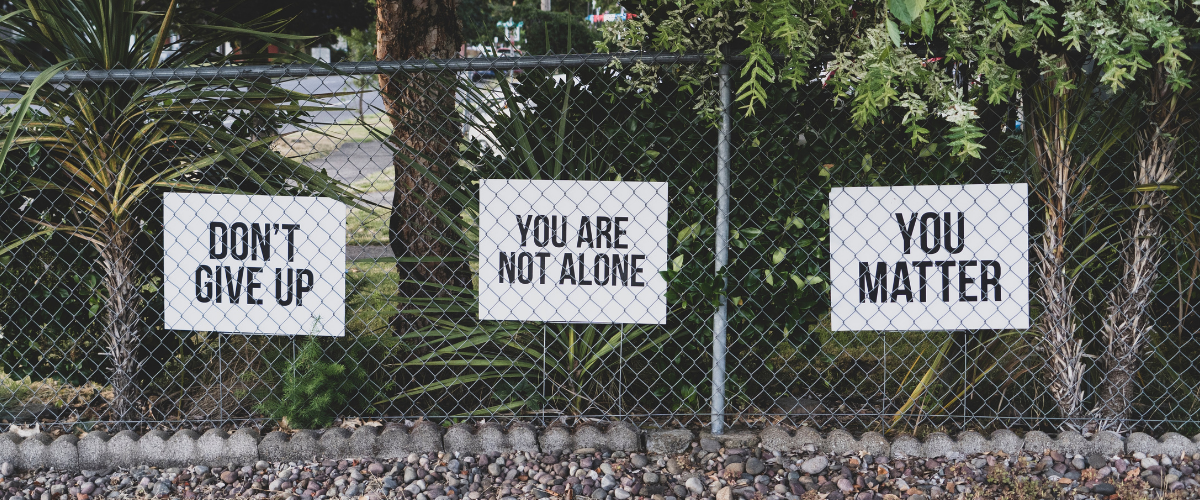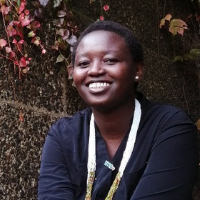This blog was written by OYW Ambassador Margaret Osolo Odhiambo, and solely expresses the views of the author.

Every 40 seconds, a family and society globally mourns a child, parent, sibling, friend, neighbour, or colleague. With increasing exposure to extreme stressors especially during the evolution of the COVID-19 pandemic and global climate changes, many of us are at-risk of ill mental health and psychosocial problems. Suicides can happen spontaneously in crisis moments with a breakdown in the ability to cope or deal with life stresses, such as discrimination, violence and abuse, financial problems, chronic pain and illness, relationship break-ups, conflicts and disasters, or loss and isolation, amongst others.
According to the World Health Organization, nearly 800,000 people die by suicide every year, and with indications that for every suicide, there may have been more than 20 suicide attempts. Suicide is a leading cause of death among 15-29-year-olds globally with 79% of global suicides occurring in low - and middle-income countries. These suicide tragedies and suicide attempts have long-lasting impacts on families, and communities. A previous suicide attempt is the single most vital risk factor for suicide in the general population with other warning signs of suicide ranging from experiencing distress e.g. feelings of anxiety and sadness, hopelessness, difficulty sleeping, fatigue, irritability or anger and/or aches and pains.
On 10th September annually, the world commemorates World Suicide Prevention Day (WSPD), an annual campaign that seeks to raise awareness about the prevalence of suicide and its prevention while providing commitment and action to prevent suicides. There were lots of initiatives - webinars, tweet chats, summits and many more. It is a problem that needs more intervention. Suicides, though a serious global public ill-health issue, are preventable with timely, evidence-based, and often low-cost interventions. Much can be done to prevent suicide at the individual, community, and national levels.
A comprehensive multisectoral suicide prevention strategy and robust mental health and psychosocial support are needed for effective responses and evidence-based interventions to prevent suicide and suicide attempts. It is our social and collective responsibility to look out for one another, especially the ones closest to us.
This #WorldSuicidePreventionDay and beyond, individuals, communities, and health systems have important roles to play in suicide prevention. Here are some things we can do:
-
Rethink our roles in #SuicidePrevention and saving lives
-
Raise awareness and promote mental health literacy on basic facts, risk and protective factors, and suicidal behaviours for suicide prevention
-
Debunk the social stigma associated with suicide and #MentalHealth, and openly discuss it
-
Learn and be more mindful of the warning signs of suicide and the necessary timely interventions to the signs
-
Foster a safe and supportive space for our loved ones, people who are vulnerable, and to those affected
-
Provide comfort to people who have lost someone to suicide and can also help fight stigma
-
Identify, prioritize and implement activities important and appropriate to local contexts on suicide prevention
-
Be part of collective action on suicide prevention through developing, disseminating, and evaluating evidence-based policies, services, and plans for suicide prevention
-
Mobilize resources and sustained support for research on possible actions and guidance on harm and #SuicidePrevention
-
Build a safe environment with secure psychosocial support and capacity
-
Improve surveillance and monitoring of suicide and suicide attempts for effective suicide prevention strategies.
-
Invest in training specialist mental healthcare professionals Increase the availability of mental health resources and to reduce barriers to accessing care.
-
Prioritize science, research, and technology to advance appropriate effectiveness aimed at reducing self-harm and suicide risk
-
Influence governments to develop inclusive suicide prevention strategies and support the implementation of the strategies demonstrated to save lives.

Margaret Osolo Odhiambo is a Global Health Advocate with a passion for science; and extensive knowledge, experience, and programming in Health and Humanitarian Action. She is keen on integrating essential and context-appropriate healthcare in communities, humanitarian crises, and emergencies.
Connect with Margaret:
LinkedIn · Twitter · Facebook · Instagram